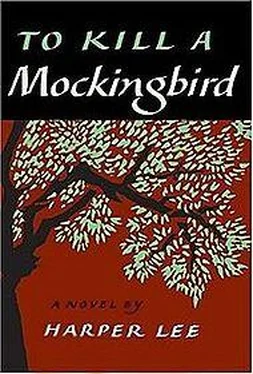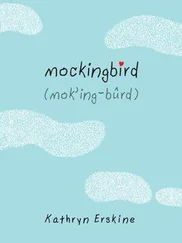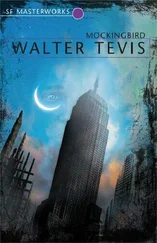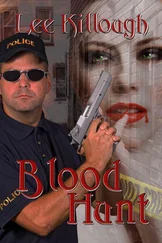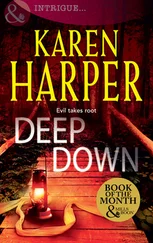Lee Harper - To Kill a Mockingbird
Здесь есть возможность читать онлайн «Lee Harper - To Kill a Mockingbird» весь текст электронной книги совершенно бесплатно (целиком полную версию без сокращений). В некоторых случаях можно слушать аудио, скачать через торрент в формате fb2 и присутствует краткое содержание. Жанр: Современная проза, на английском языке. Описание произведения, (предисловие) а так же отзывы посетителей доступны на портале библиотеки ЛибКат.
- Название:To Kill a Mockingbird
- Автор:
- Жанр:
- Год:неизвестен
- ISBN:нет данных
- Рейтинг книги:3 / 5. Голосов: 1
-
Избранное:Добавить в избранное
- Отзывы:
-
Ваша оценка:
- 60
- 1
- 2
- 3
- 4
- 5
To Kill a Mockingbird: краткое содержание, описание и аннотация
Предлагаем к чтению аннотацию, описание, краткое содержание или предисловие (зависит от того, что написал сам автор книги «To Kill a Mockingbird»). Если вы не нашли необходимую информацию о книге — напишите в комментариях, мы постараемся отыскать её.
To Kill a Mockingbird — читать онлайн бесплатно полную книгу (весь текст) целиком
Ниже представлен текст книги, разбитый по страницам. Система сохранения места последней прочитанной страницы, позволяет с удобством читать онлайн бесплатно книгу «To Kill a Mockingbird», без необходимости каждый раз заново искать на чём Вы остановились. Поставьте закладку, и сможете в любой момент перейти на страницу, на которой закончили чтение.
Интервал:
Закладка:
Miss Stephanie and Miss Rachel were waving wildly at us, in a way that did not give the lie to Dill’s observation.
“Oh gosh,” breathed Jem. “I reckon it’d be ugly not to see ‘em.”
Something was wrong. Mr. Avery was red in the face from a sneezing spell and nearly blew us off the sidewalk when we came up. Miss Stephanie was trembling with excitement, and Miss Rachel caught Dill’s shoulder. “You get on in the back yard and stay there,” she said. “There’s danger a’comin’.”
“’s matter?” I asked.
“Ain’t you heard yet? It’s all over town—”
At that moment Aunt Alexandra came to the door and called us, but she was too late. It was Miss Stephanie’s pleasure to tell us: this morning Mr. Bob Ewell stopped Atticus on the post office corner, spat in his face, and told him he’d get him if it took the rest of his life.
23
“I wish Bob Ewell wouldn’t chew tobacco,” was all Atticus said about it.
According to Miss Stephanie Crawford, however, Atticus was leaving the post office when Mr. Ewell approached him, cursed him, spat on him, and threatened to kill him. Miss Stephanie (who, by the time she had told it twice was there and had seen it all — passing by from the Jitney Jungle, she was) —Miss Stephanie said Atticus didn’t bat an eye, just took out his handkerchief and wiped his face and stood there and let Mr. Ewell call him names wild horses could not bring her to repeat. Mr. Ewell was a veteran of an obscure war; that plus Atticus’s peaceful reaction probably prompted him to inquire, “Too proud to fight, you nigger-lovin’ bastard?” Miss Stephanie said Atticus said, “No, too old,” put his hands in his pockets and strolled on. Miss Stephanie said you had to hand it to Atticus Finch, he could be right dry sometimes.
Jem and I didn’t think it entertaining.
“After all, though,” I said, “he was the deadest shot in the county one time. He could—”
“You know he wouldn’t carry a gun, Scout. He ain’t even got one—” said Jem. “You know he didn’t even have one down at the jail that night. He told me havin’ a gun around’s an invitation to somebody to shoot you.”
“This is different,” I said. “We can ask him to borrow one.”
We did, and he said, “Nonsense.”
Dill was of the opinion that an appeal to Atticus’s better nature might work: after all, we would starve if Mr. Ewell killed him, besides be raised exclusively by Aunt Alexandra, and we all knew the first thing she’d do before Atticus was under the ground good would be to fire Calpurnia. Jem said it might work if I cried and flung a fit, being young and a girl. That didn’t work either.
But when he noticed us dragging around the neighborhood, not eating, taking little interest in our normal pursuits, Atticus discovered how deeply frightened we were. He tempted Jem with a new football magazine one night; when he saw Jem flip the pages and toss it aside, he said, “What’s bothering you, son?”
Jem came to the point: “Mr. Ewell.”
“What has happened?”
“Nothing’s happened. We’re scared for you, and we think you oughta do something about him.”
Atticus smiled wryly. “Do what? Put him under a peace bond?”
“When a man says he’s gonna get you, looks like he means it.”
“He meant it when he said it,” said Atticus. “Jem, see if you can stand in Bob Ewell’s shoes a minute. I destroyed his last shred of credibility at that trial, if he had any to begin with. The man had to have some kind of comeback, his kind always does. So if spitting in my face and threatening me saved Mayella Ewell one extra beating, that’s something I’ll gladly take. He had to take it out on somebody and I’d rather it be me than that houseful of children out there. You understand?”
Jem nodded.
Aunt Alexandra entered the room as Atticus was saying, “We don’t have anything to fear from Bob Ewell, he got it all out of his system that morning.”
“I wouldn’t be so sure of that, Atticus,” she said. “His kind’d do anything to pay off a grudge. You know how those people are.”
“What on earth could Ewell do to me, sister?”
“Something furtive,” Aunt Alexandra said. “You may count on that.”
“Nobody has much chance to be furtive in Maycomb,” Atticus answered.
After that, we were not afraid. Summer was melting away, and we made the most of it. Atticus assured us that nothing would happen to Tom Robinson until the higher court reviewed his case, and that Tom had a good chance of going free, or at least of having a new trial. He was at Enfield Prison Farm, seventy miles away in Chester County. I asked Atticus if Tom’s wife and children were allowed to visit him, but Atticus said no.
“If he loses his appeal,” I asked one evening, “what’ll happen to him?”
“He’ll go to the chair,” said Atticus, “unless the Governor commutes his sentence. Not time to worry yet, Scout. We’ve got a good chance.”
Jem was sprawled on the sofa reading Popular Mechanics. He looked up. “It ain’t right. He didn’t kill anybody even if he was guilty. He didn’t take anybody’s life.”
“You know rape’s a capital offense in Alabama,” said Atticus.
“Yessir, but the jury didn’t have to give him death — if they wanted to they could’ve gave him twenty years.”
“Given,” said Atticus. “Tom Robinson’s a colored man, Jem. No jury in this part of the world’s going to say, ‘We think you’re guilty, but not very,’ on a charge like that. It was either a straight acquittal or nothing.”
Jem was shaking his head. “I know it’s not right, but I can’t figure out what’s wrong — maybe rape shouldn’t be a capital offense....”
Atticus dropped his newspaper beside his chair. He said he didn’t have any quarrel with the rape statute, none what ever, but he did have deep misgivings when the state asked for and the jury gave a death penalty on purely circumstantial evidence. He glanced at me, saw I was listening, and made it easier. “—I mean, before a man is sentenced to death for murder, say, there should be one or two eye-witnesses. Some one should be able to say, ‘Yes, I was there and saw him pull the trigger.’”
“But lots of folks have been hung — hanged — on circumstantial evidence,” said Jem.
“I know, and lots of ‘em probably deserved it, too — but in the absence of eye-witnesses there’s always a doubt, some times only the shadow of a doubt. The law says ‘reasonable doubt,’ but I think a defendant’s entitled to the shadow of a doubt. There’s always the possibility, no matter how improbable, that he’s innocent.”
“Then it all goes back to the jury, then. We oughta do away with juries.” Jem was adamant.
Atticus tried hard not to smile but couldn’t help it. “You’re rather hard on us, son. I think maybe there might be a better way. Change the law. Change it so that only judges have the power of fixing the penalty in capital cases.”
“Then go up to Montgomery and change the law.”
“You’d be surprised how hard that’d be. I won’t live to see the law changed, and if you live to see it you’ll be an old man.”
This was not good enough for Jem. “No sir, they oughta do away with juries. He wasn’t guilty in the first place and they said he was.”
“If you had been on that jury, son, and eleven other boys like you, Tom would be a free man,” said Atticus. “So far nothing in your life has interfered with your reasoning process. Those are twelve reasonable men in everyday life, Tom’s jury, but you saw something come between them and reason. You saw the same thing that night in front of the jail. When that crew went away, they didn’t go as reasonable men, they went because we were there. There’s something in our world that makes men lose their heads — they couldn’t be fair if they tried. In our courts, when it’s a white man’s word against a black man’s, the white man always wins. They’re ugly, but those are the facts of life.”
Читать дальшеИнтервал:
Закладка:
Похожие книги на «To Kill a Mockingbird»
Представляем Вашему вниманию похожие книги на «To Kill a Mockingbird» списком для выбора. Мы отобрали схожую по названию и смыслу литературу в надежде предоставить читателям больше вариантов отыскать новые, интересные, ещё непрочитанные произведения.
Обсуждение, отзывы о книге «To Kill a Mockingbird» и просто собственные мнения читателей. Оставьте ваши комментарии, напишите, что Вы думаете о произведении, его смысле или главных героях. Укажите что конкретно понравилось, а что нет, и почему Вы так считаете.
